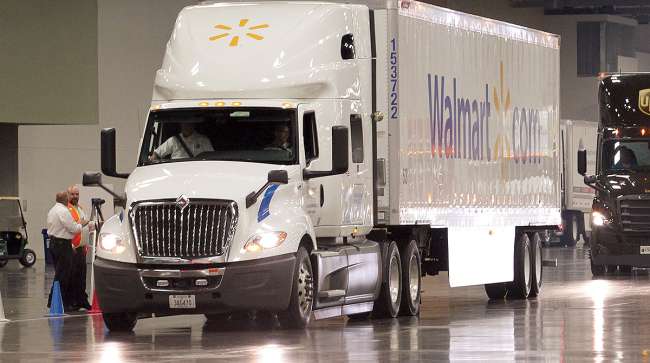Senior Reporter
ATA Among Trucking Stakeholders Asking Appeals Court to Rehear Walmart Case

[Stay on top of transportation news: Get TTNews in your inbox.]
Walmart should not be required to pay a large court-certified class of its California truck drivers $54 million for layovers, rest breaks and pre-trip and post-trip inspections, according to an amicus curiae brief filed with the 9th U.S. Circuit Court of Appeals by two large trucking trade organizations and a pair of large motor carriers.
In the “friend of the court” brief supporting Walmart, American Trucking Associations, the California Trucking Association, CRST Expedited Inc. and U.S. Xpress Inc. asked the appellate court to rehear the facts of the decade-old lawsuit it decided in favor of the drivers last month.
Specifically the appeals court Jan. 6 upheld a federal district court’s jury decision that awarded the drivers $44.7 million for layovers, $3.9 million for rest breaks, $2.9 million for pre-trip inspections and $2.9 million for post-trip inspections.
In part two of a two-part exploration of autonomous technology today, our latest RoadSigns podcast revisits conversations with Chuck Price of TuSimple and Ognen Stojanovski of Pronto.ai. Hear them discuss a palatable Level 2 version of trucking autonomy. Listen to a snippet above, and to hear the full episode, go to RoadSigns.TTNews.com.
But the amicus curiae brief said the trucking industry has a “strong interest in the outcome of this case, which has major implications for the treatment of time that drivers spend off-duty in a truck’s sleeper berth under California wage law.”
One of the key issues in the lawsuit was whether Walmart had to give its drivers back pay because the company required its drivers to check in with the employer before leaving the workplace.
The brief argued that the 9th Circuit panel’s ruling “calls into serious question the ubiquitous pay practices of not just the trucking industry, but any industry where employees are expected to check in with their employer before heading out for the day.”
In its request for a rehearing filed last month, Walmart said that on a few key issues the federal district court made erroneous rulings, most importantly related to the question of whether Walmart had control of the drivers during their layovers and breaks.
The brief in support of Walmart said the appellate panel’s decision “leaves the trucking industry in a state of grave uncertainty, even for motor carriers whose policies differ from Walmart’s.”
“After all, every motor carrier has an obligation — both to the motoring public and to its customers — to impose some conditions on drivers before they go off-duty, such as requiring that the driver park the truck in a safe, secure and legal location before beginning an off-duty period elsewhere,” the Walmart supporters’ brief said. “No motor carrier would expect that such minor, routine limitations on drivers’ ability to unilaterally go off-duty would represent the kind of control that renders the off-duty time compensable.”
But the appeals court’s ruling said, “Walmart and plaintiffs propose several bases for reversal in this admittedly complex case, but ultimately none holds water. Following over a decade of litigation, a robust motions practice and a 16-day trial, we conclude that the judgment should stand.”
Walmart ranks No. 4 on the Transport Topics Top 100 list of the largest private carriers in North America.
Want more news? Listen to today's daily briefing:





